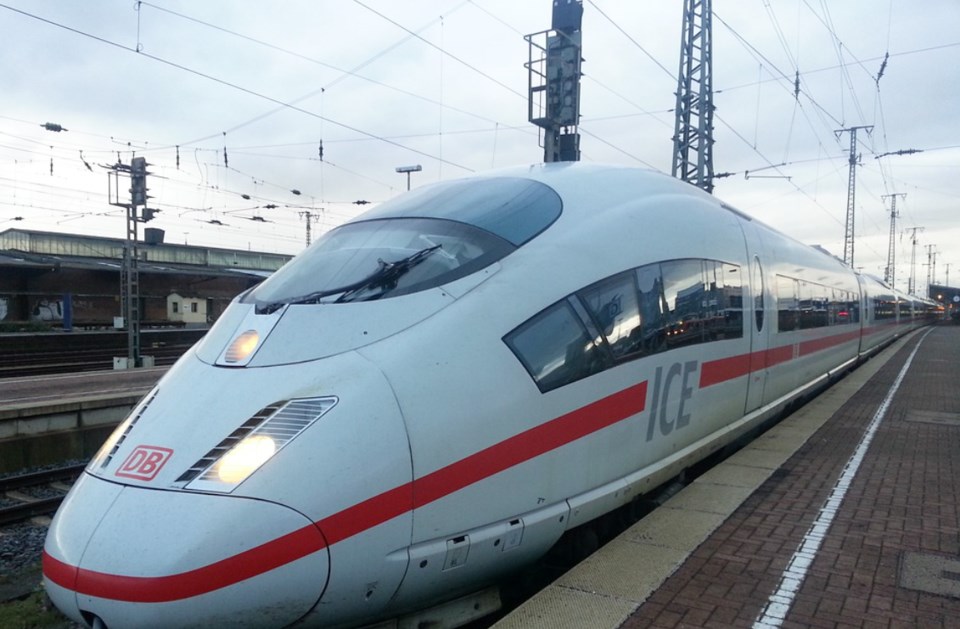Delta residents and many others might be better off moving to Seattle and catching a high-speed train to Vancouver.
That is what Delta South MLA Ian Paton is once again saying in response the New Democrat government’s announcement this week that B.C. is further supporting a study into the feasibility of a high-speed rail service connecting Vancouver, Seattle and Portland. The province is contributing another $300,000 for the next phase of the Ultra High Speed Ground Transportation Project.
In 2019, the province released a report on the proposed high-speed rail link, which found such a system would cut the travel time between each city to under an hour while providing a big boost for the economy of the region.
The next phase of the study, led by the Washington State Department of Transportation in partnership with B.C., Oregon and other regional and local agencies, intends to, among other things, address the roles, responsibilities and future funding requirements of the project. The study is to also develop a regional public outreach and engagement strategy and explore opportunities to integrate ultra-high-speed rail into regional transportation and land-use planning.
“I already said in question period in the legislature that if it’s only going to take an hour to take the fast train from Seattle to Vancouver, people should move to Seattle and take the train the Downtown Vancouver. That would be quicker than trying to get through the George Massey Tunnel,” said Paton. “Throwing another $300,000 for a project that could cost $42 billion makes no sense, when our province has so many programs that desperately need the money. It’s mind boggling. I don’t know about you, but I can’t think of anyone who has come to me to say they want to go to Seattle all the time. Are all those billions to help people go down to a (Seattle) Seahawks football game?
“When you look at the fact they killed the George Massey Tunnel Replacement Project, and who knows when that project will be built, not to mention the issues we have with congestion for people getting out of the North Shore, and Highway 1 is a complete disaster in the Fraser Valley all the way to Hope. There’s just so many more things that need to be dealt with in this province.”
Premier John Horgan in a news release said the proposal has the potential to significantly cut transportation time between Seattle and Vancouver, presenting new opportunities for clean economic growth, job creation and tourism throughout the region.
Similar comments were made from his counterparts on the other side of the border.
The province notes that results from pervious phases of the study show the project presents significant benefits, such as stronger trade ties between B.C., Washington and Oregon, including economic activity equalling as much as $355 billion within the region and the creation of as many as 200,000 jobs.
The results also found, among other things, there could be between 1.7 million and 3.1 million one-way trips annually by 2040, with Vancouver to Seattle estimated at 25 per cent of the total, as well as a reduction of as much as six million tonnes of greenhouse gas in the first 40 years of operations.
The estimated construction cost could be as much as $42 billion but would be covered by revenue by 2055.



